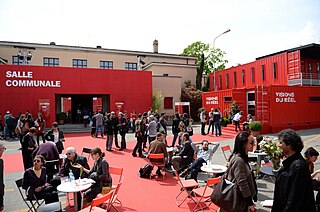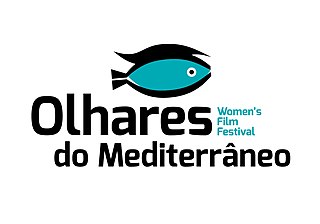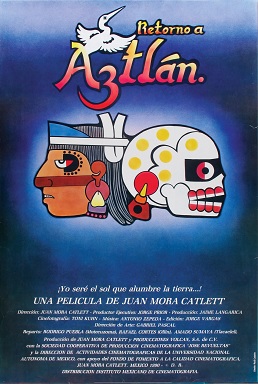Related Research Articles

Luis Buñuel Portolés was a Spanish filmmaker who worked in France, Mexico, and Spain. He has been widely considered by many film critics, historians, and directors to be one of the greatest and most influential filmmakers of all time. Buñuel’s works were known for their avant-garde surrealism which were also infused with political commentary.

Naomi Kawase is a Japanese film director. She was also known as Naomi Sento, with her former husband's surname. Many of her works have been documentaries, including Embracing, about her search for the father who abandoned her as a child, and Katatsumori, about the grandmother who raised her.

Visions du Réel is an internationally renowned documentary film festival held in April each year in Nyon, Switzerland. Established in 1969 as the Nyon International Documentary Film Festival, the event adopted its current name in 1995 and is the largest Swiss documentary festival.

The 58th Cannes Film Festival started on 11 May and ran until 22 May 2005. Twenty movies from 13 countries were selected to compete. The awards were announced on 21 May, the Palme d'Or went to the Belgian film L'Enfant by the Dardenne brothers.

The Guadalajara International Film Festival is a week-long film festival held each March in the Mexican city of Guadalajara since 1986.

The 60th Cannes Film Festival ran from 16 to 27 May 2007. The President of the Jury was British director Stephen Frears. Twenty two films from twelve countries were selected to compete for the Palme d'Or. The awards were announced on 26 May. Romanian film 4 Months, 3 Weeks and 2 Days, directed by Cristian Mungiu, was awarded with the Palme.

Méliès International Festivals Federation (MIFF), formerly European Fantastic Film Festivals Federation (EFFFF), established in 1987, is a network of 22 genre film festivals from 16 countries based Brussels, Belgium, and dedicated to promoting and supporting European cinema, particularly films in the fantasy, horror and science fiction genres.

Abbas Fadhel is an Iraqi-French film director, screenwriter and film critic, born in Babylon, Iraq.

The 30th Cannes Film Festival was held from 13 to 27 May 1977. The Palme d'Or went to the Padre Padrone by Paolo and Vittorio Taviani. A new non-competitive section, "Le Passé composé", is held at this festival only and focuses on compilations. This section, along with sections "Les Yeux fertiles" and "L'Air du temps" of the previous two years, were integrated into Un Certain Regard in 1978.

Chilean cinema refers to all films produced in Chile or made by Chileans. It had its origins at the start of the 20th century with the first Chilean film screening in 1902 and the first Chilean feature film appearing in 1910. The oldest surviving feature is El Húsar de la Muerte (1925), and the last silent film was Patrullas de Avanzada (1931). The Chilean film industry struggled in the late 1940s and in the 1950s, despite some box-office successes such as El Diamante de Maharajá. The 1960s saw the development of the "New Chilean Cinema", with films like Three Sad Tigers (1968), Jackal of Nahueltoro (1969) and Valparaíso mi amor (1969). After the 1973 military coup, film production was low, with many filmmakers working in exile. It increased after the end of the Pinochet regime in 1989, with occasional critical and/or popular successes such as Johnny cien pesos (1993), Historias de Fútbol (1997) and Gringuito (1998).

Mole, meaning 'sauce', is a traditional sauce and marinade originally used in Mexican cuisine. In contemporary Mexico the term is used for a number of sauces, some quite dissimilar, including mole amarillo or amarillito, mole chichilo, mole colorado or coloradito, mole manchamantel or manchamanteles, mole negro, mole rojo, mole verde, mole poblano, mole almendrado, mole michoacano, mole prieto, mole ranchero, mole tamaulipeco, mole xiqueno, pipián, mole rosa, mole blanco, chimole, guacamole and huaxmole.

Diana El Jeiroudi, is a Berlin-based, Syrian independent film director and producer. El Jeiroudi’s films as director were celebrated at many festivals, including the Venice Film Festival, IDFA, DokLeipzig, Visions du Réel, CPH:DOX… among others. Her producing credits include the Sundance 2023 film 5 Seasons of Revolution, the Cannes Film Festival 2014 selection Silvered Water, the IDFA 2013 selection The Mulberry House, among others. She was the first Syrian to be a juror in Cannes Film Festival in 2014, when she was part of the first Documentary Film Award jury in the festival. Together with her partner Orwa Nyrabia, El Jeiroudi was also the first Syrian known to be invited to become a member of the Academy of Motion Picture Arts and Sciences in 2017. El Jeiroudi was also a co-founder of DOX BOX International Documentary Film Festival in Syria and DOX BOX e.V. non-profit association in Germany.
The Biarritz Festival Latin America is an international film festival held annually in the French city of Biarritz, since 1979 to promote the Latin American cinema and culture with the French people and offer opportunities to distribution or coproductions to Latin American films.

Homeland: Iraq Year Zero is a 2015 documentary film written and directed by the Iraqi-French film director Abbas Fahdel.

Olhares do Mediterrâneo - Women's Film Festival is an international film festival of films made by Mediterranean women directors. The 8th edition of the Festival took place in Lisbon, Portugal, on November 10-14 2021, at Cinema São Jorge.

The 69th Cannes Film Festival was held from 11 to 22 May 2016. Australian director George Miller was the president of the jury for the main competition. French actor Laurent Lafitte was the host for the opening and closing ceremonies. On 15 March it was announced that Japanese director Naomi Kawase would serve as the Cinéfondation and Short Film Jury president. American director Woody Allen's film Café Society opened the festival.

Return to Aztlán (In Necuepaliztli in Aztlan, original title in Náhuatl) is a Mexican fiction film directed by Juan Mora Catlett starring Rodrigo Puebla, Rafael Cortés, Amado Zumaya, Socorro Avelar, made in 1990. It was the first feature film filmed in Mexico spoken entirely in Náhuatl, subtitled in Spanish in exhibition. The film was produced in the context of Nuevo Cine Mexicano films.

Tatiana Huezo Sánchez is a film director of Salvadoran and Mexican nationality, residing in Mexico. Her first film, El lugar más pequeño (2011), a documentary about the Salvadoran Civil War, has been awarded internationally. In 2016 she premiered Tempestad, the story of two women who suffer the consequences of human trafficking in Mexico. It received the 2016 Fénix Award for Best Documentary. In 2021, she premiered her first fiction film, Noche de Fuego, a story about three young girls in Mexico on their path to examine their adolescence in a town dominated by drug trade and human trafficking.
Shengze Zhu is a Chinese producer and documentary filmmaker. She co-founded the production company Burn the Film with director Yang Zhengfang and is best known for her documentation of contemporary Chinese life through film.

The Echo is a 2023 Mexican-German docufiction film directed by Tatiana Huezo. The film, which also includes fictional elements, portrays the children of an isolated village "El Echo", in the Mexican highlands. The film is co-produced by Germany, and was selected to receive its world premiere in the Encounters section of the 73rd Berlin International Film Festival, on 17 February 2023. On December 7, it appeared in the eligible list for consideration of Academy Award for Best Documentary Feature Film for the 96th Academy Awards.
References
- ↑ Sienra, Regina (August 18, 2017). "Café, un documental en náhuatl sobre la fortaleza familiar". Gatopardo (in Spanish). Retrieved June 5, 2021.
- ↑ Betancourt, Manuel (January 31, 2019). "'Café' is a Lyrical Look at the Life of a Nahua Family in Puebla". Remezcla. Retrieved June 5, 2021.
- ↑ Guzman, Sandra (January 22, 2015). "Cinema Tropical Awards: Fathers And Sons A Big Theme In Winning Films". NBC News. Retrieved June 5, 2021.
- ↑ Braine, Theresa (September 13, 2018). "Mexico Films Top Montreal First Peoples Festival Awards". Indian Country Today. Retrieved June 5, 2021.
- ↑ Barranco, Daniela (August 21, 2017). "Hatuey Viveros: un ejemplo de amor por el cine y perseverancia". máspormás (in Spanish). Retrieved June 5, 2021.
- ↑ Maristain, Mónica (August 20, 2017). ""Café", el documental de un abogado que se queda en el pueblo a defender a su comunidad". Sin Embargo (in Spanish). Retrieved June 5, 2021.